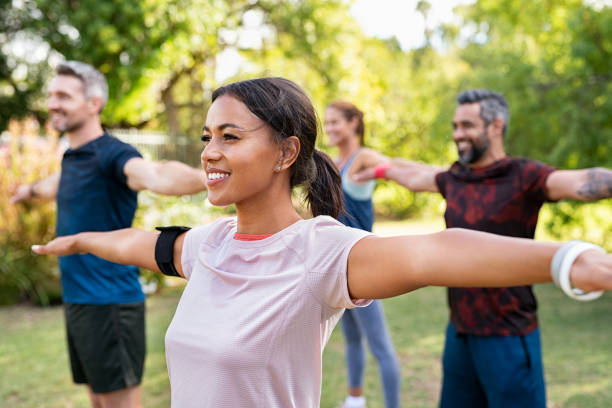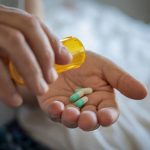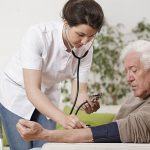Effects of High Blood Pressure’s Medicine on Exercise

High blood pressure medicine and exercise are both used to treat hypertension and are frequently prescribed together. Most people taking high blood pressure medication can safely exercise; in fact, this is usually recommended. However, all medications pose some risk of side effects and blood pressure medicine is no exception. If you are on medication for high blood pressure, talk to your doctor before starting an exercise program, because certain side effects like fatigue or dizziness may impact the types of exercise you are able to do.
High Blood Pressure and Exercise
Exercise is integral in the treatment of high blood pressure because it strengthens the heart, reduces stress and promotes weight loss. It is generally safe to exercise while on blood pressure medication, and doctors often prescribe both medication and exercise to treat hypertension. If you are already taking medication for high blood pressure, adding regular exercise may help you to lower the dose. That said, before starting an exercise program while taking any type of medication, ask your doctor if exercising will make the medication work differently if your medication will affect your body's reaction to exercise.
Side Effects
Some medications commonly prescribed for high blood pressure may result in side effects that can affect the way you feel during exercise; however, many people have no adverse side effects with high blood pressure medication. Some frequently prescribed medications for hypertension include beta blockers, angiotensin-converting enzyme, or ACE, inhibitors and diuretics. Beta blockers and ACE inhibitors can cause fatigue and dizziness, which may impact the intensity and duration at which you are able to comfortably exercise. Diuretics often cause increased urination, so when exercising on diuretics, it is important to drink plenty of water to prevent dehydration as water is also lost through sweat.
Safety
If you have high blood pressure, it is important to start exercising slowly, regardless of whether you are taking medication, according to the American Heart Association. Stop exercising and seek medical care if you experience warning signs during exercise, including: chest pain, dizziness, faintness, pain in your arm or jaw, severe shortness of breath, severe fatigue or an irregular heartbeat.
Lifestyle Changes
In addition to exercise and high blood pressure medication, your doctor may recommend other lifestyle changes that can help reduce your blood pressure. These changes include eating a healthy diet with potassium, fiber, and only limited amounts of salt and alcohol; smoking cessation; stress reduction; and reaching a healthy body weight.
Prevention
Getting 30 minutes of exercise on most days of the week can prevent you from ever getting high blood pressure in the first place. Other things you can do to prevent the development of hypertension include not smoking; eating a diet rich in vegetables, fruits, and low-fat dairy; managing stress in healthy ways; and not drinking more than one alcoholic beverage daily for women, or two drinks for men. If you have pre-hypertension, your doctor may prescribe you exercise and/or medication to prevent it from developing into full-blown hypertension.









